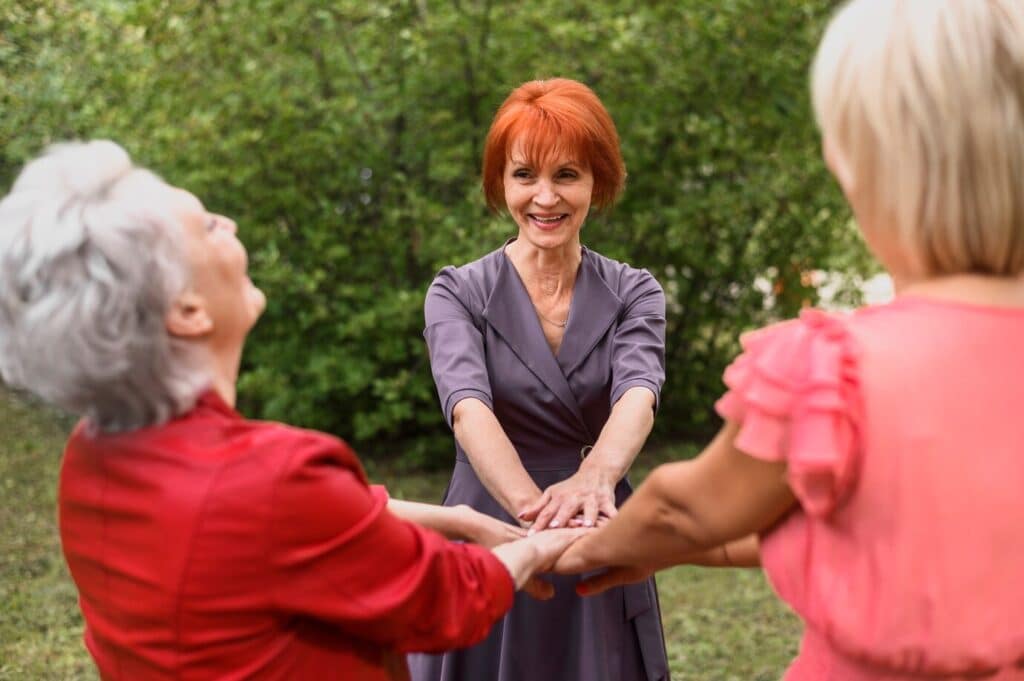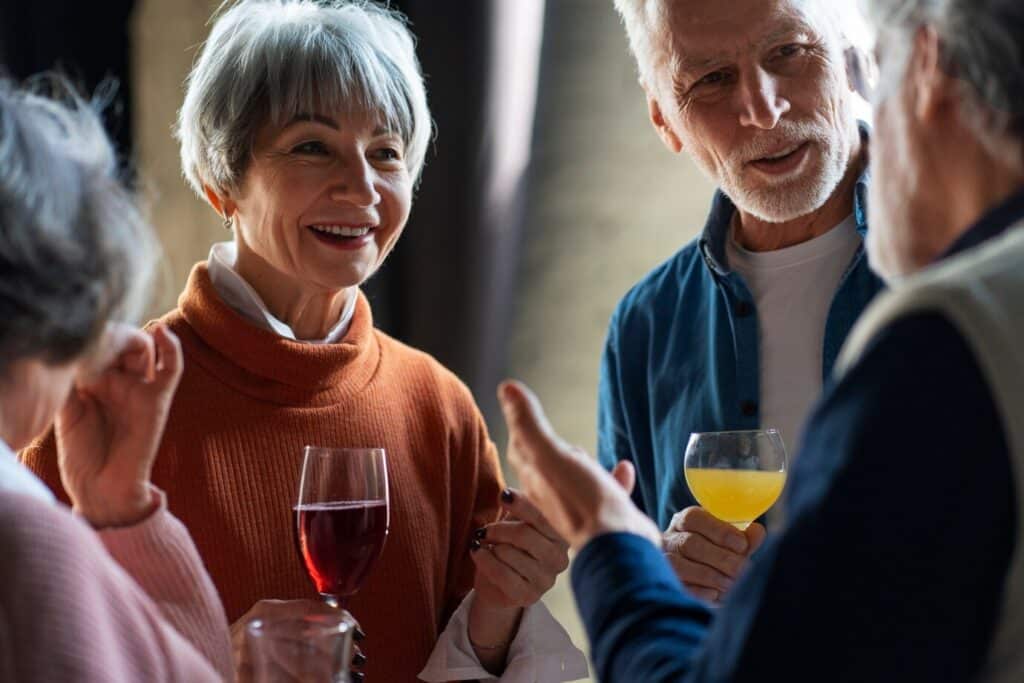Social Dynamics in Independent Living Communities
In an independent living community like Westmont of Chico, every resident contributes to the rhythm of daily life. These contributions shape a shared social atmosphere where individual stories and personalities converge to form something bigger than themselves. Recognizing and nurturing these social dynamics in independent living fosters an inclusive and empowering space supporting independence and emotional well-being.
What Are Social Dynamics in Sociology?
To understand social dynamics in independent living, we must first ask, what are social dynamics in sociology? These patterns and processes govern social interactions, group behavior, and collective relationships. In senior communities, these dynamics influence how residents form friendships, resolve disagreements, and feel a sense of belonging. By cultivating positive relationships and shared understanding, residents create a supportive space where everyone feels included. This synergy is the cornerstone of a healthy, independent living environment. Moreover, social activity can prolong life and improve cognitive health, especially in aging adults.
What Is Independent Living Services Support?
What is independent living services support exactly? These services are designed to help older adults maintain their autonomy while enjoying the benefits of a community setting. From housing and dining to social programs and wellness options, independent living services remove daily stressors while encouraging meaningful interaction. These structured yet flexible services create the foundation where social independence flourishes. Residents can enjoy privacy while still being part of something larger—a space where they can thrive socially, emotionally, and physically.
How Social Independence Shapes Community Life
At Westmont of Chico, social independence is more than a concept—it’s a way of life. Residents make their own choices, set their routines, and engage in ways that reflect their identity. Individuals form authentic bonds with the freedom to participate in communal events, lead peer activities, or simply share stories over meals. This self-directed involvement nurtures a sense of purpose and promotes confidence. Encouraging autonomy while providing opportunities for interaction helps residents feel free and supported—a delicate balance defining the success of independent living.
Social Dynamics Examples Within the Community
So, what do social dynamics examples look like in a place like Westmont of Chico? They appear in everyday moments: shared laughter during a group walk, spontaneous conversations at breakfast, or creative collaboration in an art class. Even moments of disagreement contribute to the community’s social fabric when resolved with empathy and communication. These examples show that healthy social dynamics are not always perfect but resilient and adaptive. They reveal how small interactions can affect residents’ mental health and emotional fulfillment. Participating in community events supports these dynamics and builds lasting relationships.
What Is Supported Independent Living at Westmont?
If you’re curious, what is supported independent living? While similar to independent living, this model provides additional support—ideal for residents who desire assistance while still maintaining their autonomy. At Westmont of Chico, this might mean help with daily tasks or access to on-site wellness services. Supported independent living creates a safety net that allows residents to stay engaged and active without compromising their independence. By removing specific stressors, individuals can focus on connecting with peers, exploring hobbies, and investing in community life—making it a seamless blend of care and connection.
Encouraging Communication and Understanding
Communication is crucial to maintaining strong social dynamics in independent living. From casual chats to structured forums, every conversation matters. Encouraging honest, respectful dialogue ensures that residents feel seen and heard. When individuals express their thoughts and actively listen to others, they help foster an environment of trust. This communication contributes to emotional well-being, especially in seniors who may otherwise feel isolated. In fact, consistent social connection has been linked to reduced loneliness, proving that a single heartfelt conversation can improve quality of life.
Handling Conflict Through Respectful Dialogue
In any shared space, occasional disagreements are natural. However, strong social dynamics in independent living communities depend on how those disagreements are handled. Westmont encourages open communication, respectful listening, and mediation support if needed. Residents are empowered to address issues directly or with assistance from staff trained to facilitate healthy resolution. These constructive approaches resolve conflicts and deepen mutual understanding and respect. Maintaining open dialogue during challenging moments shows the strength of the community’s foundation.

Building Connections
Activities That Strengthen Social Ties
At the heart of Westmont’s approach is the belief that shared experiences build strong bonds. Whether it’s fitness sessions, storytelling nights, or art workshops, activities are curated to reflect the interests and strengths of the residents. Every event is a chance for connection, and every shared moment reinforces the positive social dynamics in independent living communities. By gathering regular feedback and tailoring events accordingly, residents stay actively involved and feel a sense of ownership over their community. These efforts ensure social life is not only active but meaningful.
Embracing Cultural Diversity and Shared Traditions
Social connection also means embracing the unique backgrounds of every resident. Events that celebrate diverse heritages—through food, music, or storytelling—foster inclusivity and understanding. These gatherings allow one to reflect on each resident’s journey and build mutual appreciation. Encouraging participation in cross-cultural experiences creates a space where differences are not just respected—they are honored. This intentional celebration of diversity deepens the community’s richness and strengthens the social dynamics in independent living settings.
Why Understanding Social Dynamics Matters
Ultimately, answering what social dynamics are in sociology helps us recognize the subtle forces that shape everyday life. In an independent living setting, these dynamics influence everything from friendship to emotional health. They impact how residents navigate change, celebrate milestones, and support each other in need. At Westmont of Chico, the focus on fostering strong interpersonal relationships isn’t accidental—it’s essential. When people connect authentically, the community becomes more than just a place to live. It becomes a space where life is shared.
Whether you’re exploring what is independent living services for yourself or a loved one, understanding and supporting the social dynamics in independent living is vital. It shapes the resident experience and the very heart of the community itself.
For more information, contact us at Westmont of Chico by calling 530-767-3886.
Dive into the vibrant life our Westmont communities have to offer.Find Where You Belong
Frequently Asked Questions
Why do people leave assisted living?
People leave assisted living for various reasons, including needing a higher level of care, such as skilled nursing or memory care. Some may choose to move closer to family, experience financial difficulties, or find that their health has improved enough to live more independently. In some cases, residents may transition out due to personal preferences or changes in their living situation.
What is an independent living thing?
An independent living thing is any organism that can survive and function without relying on another organism for direct support. This includes plants, animals, and microorganisms, which have the biological ability to grow, reproduce, and sustain life independently. Each species adapts to its environment using its own survival mechanisms.
When should a person go into assisted living?
A person should consider assisted living when they need help with daily activities such as bathing, dressing, medication management, or meal preparation. It may also be the right choice if they experience frequent falls, memory issues, or social isolation. Consulting with a healthcare provider and assessing their ability to live safely and independently can help determine the best time for this transition.
How to pay for parents’ assisted living?
Paying for assisted living can be done through personal savings, retirement funds, long-term care insurance, or government programs like Medicaid, depending on eligibility. Some families use the sale of a home, life insurance policies, or veterans’ benefits to help cover costs. Exploring financial assistance options and planning ahead can help make assisted living more affordable.









